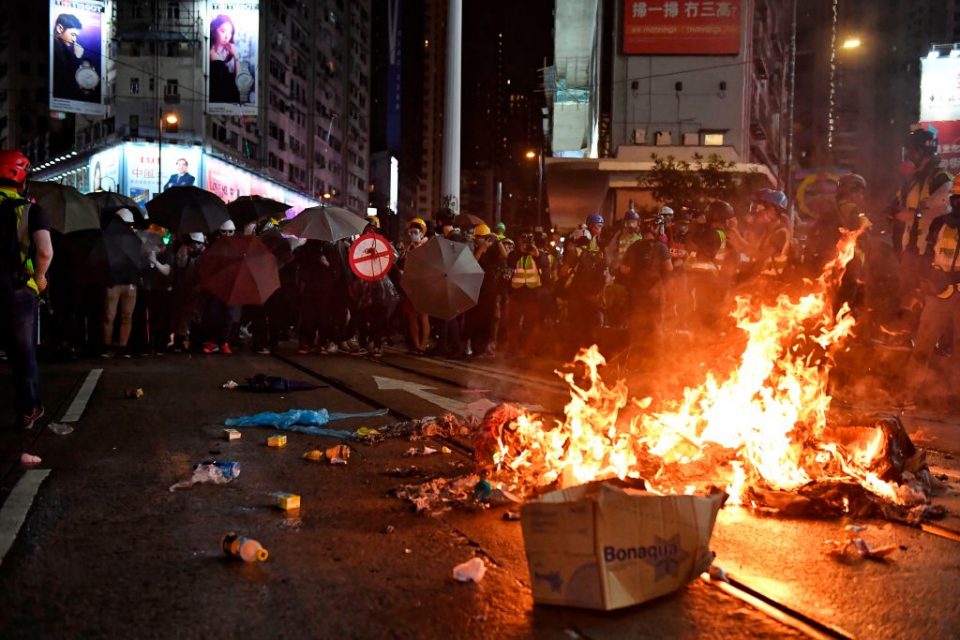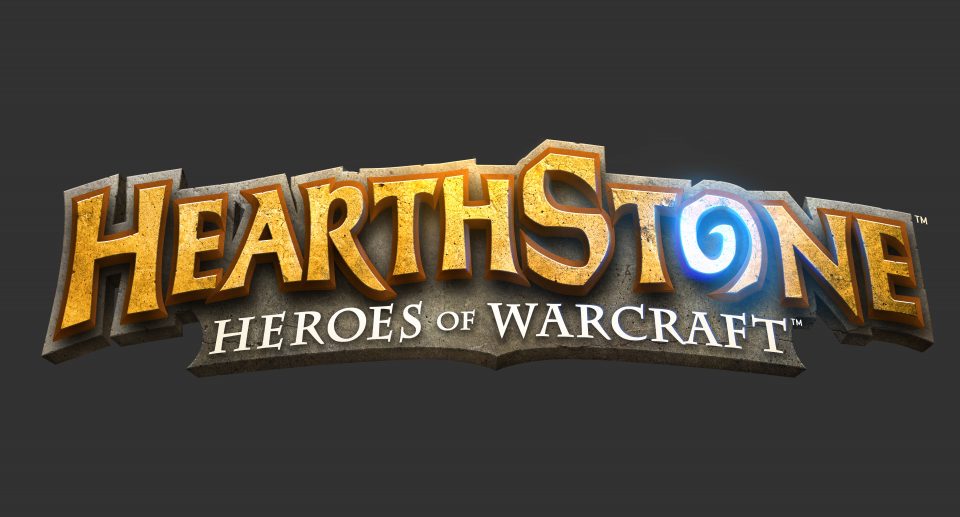Hearthstone is caught in a Blizzard over Hong Kong protest
The protests in Hong Kong have featured prominently in the news cycle since kicking off in March. All across the world, we’ve seen extensive coverage of the outbreaks of violence, as well as the excessive use of force by police to suppress the demonstrations.
It’s likely that you’ve been following the story, but what you might have missed last week was how the protests impacted a video game competition.
The game in question is called Hearthstone, a digital collectible card game based on the popular World of Warcraft franchise, in which two players use decks of spells and monsters to clobber one another.
It’s immensely popular, with more than 100m players around the world, including a substantial following in China. Since launching in 2014, the game has earned hundreds of millions of dollars for its US developer Blizzard – a subsidiary of Activision-Blizzard.
A key element of its appeal is the competitive gaming scene, where professional Hearthstone players take part in tournaments for cash prizes. These competitions, called esports, are then broadcast over the internet streaming service Twitch to viewers at home.
This year, Hearthstone esports has been dominated by the Grandmasters tournament, where 48 top players from the Americas, Europe, and Asia-Pacific regions battle it out over two eight-week seasons of games to climb to the top of the points table. The ultimate prize pool is worth $500,000, but players can earn cash rewards along the way for winning their bouts.
The competition became mired in controversy last week. On 5 October, a Hong Kong player called Ng Wai “Blitzchung” Chung was interviewed on an official livestream from Taiwan after winning a match.
During this interview, Chung wore a gas mask and yelled “Liberate Hong Kong, revolution of our age”. The mask and slogan are symbols of the protest movement in his homeland.
Two days later, Blizzard issued a statement that Chung had broken the competition’s official rules, specifically one regarding “engaging in any act that, in Blizzard’s sole discretion, brings you into public disrepute, offends a portion or group of the public, or otherwise damages Blizzard’s image”.
As punishment, Chung was removed from the tournament, banned from any Hearthstone esports for 12 months, and his competition winnings of $10,000 were reduced to zero.

Blizzard no doubt felt that it had to make an example of Chung for breaking the tournament’s rules and to dissuade other players from making overtly political statements during competitions. However, the ruling was met with a substantial backlash.
Members of the game’s online community saw the punishment as unreasonable and too harsh. Thousands of messages were written on social media and forums defending Chung and criticising Blizzard’s knee-jerk reaction.
Some went further. Notable members of the community announced that they would boycott future Hearthstone events, while other fans said they would no longer play the game. Even some of Blizzard’s employees protested the decision.
If Blizzard’s motivation for sanctioning Chung was simply to prevent further political outbursts, this backfired. After the ruling, three players from the American University team held up a sign that read “Free Hong Kong, Boycott Blizz” during a livestream on the company’s official Twitch channel. Yesterday, the trio received a six month ban from competing.
Fans have clearly interpreted the situation as Blizzard – an American company – suppressing Chung’s right to free speech. While some defended the company, arguing that it was just trying to keep potentially divisive politics out of the competition, others accused it of capitulating to China in order to protect its interests.
Some even speculated that the Chinese tech giant Tencent, which owns a five per cent stake in Activision-Blizzard, may have directly influenced the decision.
What started off in the niche world of video games has now become a matter of geopolitics. US senator and former Republican presidential hopeful Marco Rubio tweeted: “Recognise what’s happening here. People who don’t live in China must either self censor or face dismissal and suspensions. China is using access to market as leverage to crush free speech globally.”
By the end of the week, Blizzard was forced to address the backlash. Company president J. Allen Brack issued a statement saying that it was reducing Chung’s ban to six months and letting him keep his prize money. Brack also denied that Blizzard’s “relationships in China” had influenced the decision.

Blizzard isn’t the first entertainment company to be drawn into the dispute between China and Hong Kong. America’s National Basketball Association dealt with a similar situation this month, but took a different tack.
The NBA, like Blizzard, is heavily invested in China, but it defended the manager of the Houston Rockets after he tweeted support for Hong Kong. This has come at a cost –
Tencent and China’s state broadcaster CCTV suspended broadcasts of Rockets games, and some sponsors broke off relations with the team. Clearly, taking a moral stand is not free of consequences.
Taking a step back, the situation raises some uncomfortable questions about China’s influence in unexpected places, the responsibilities of global corporations, and especially the role of politics and free speech in sports and entertainment.
Chung is hardly the first athlete to be punished for expressing a political view – look at American football player Colin Kaepernick, who was criticised for kneeling during the national anthem in protest of police brutality and racism, or gold and bronze medalists Tommie Smith and John Carlos, who were ostracised by the US sports establishment after they bowed their heads and gave the Black Power salute on the podium at the 1968 Olympics. There is a long history of people using sports as a platform for activism, putting their careers – and themselves – in jeopardy.
Some readers may see video games simply as places for escapism, ones which are divorced from real-world events. But this situation shows the reverse is true – real-life events can have huge impacts on these virtual spaces.
Main image credit: Blizzard Entertainment
Update: This story was updated to reflect the penalty given to the American University team